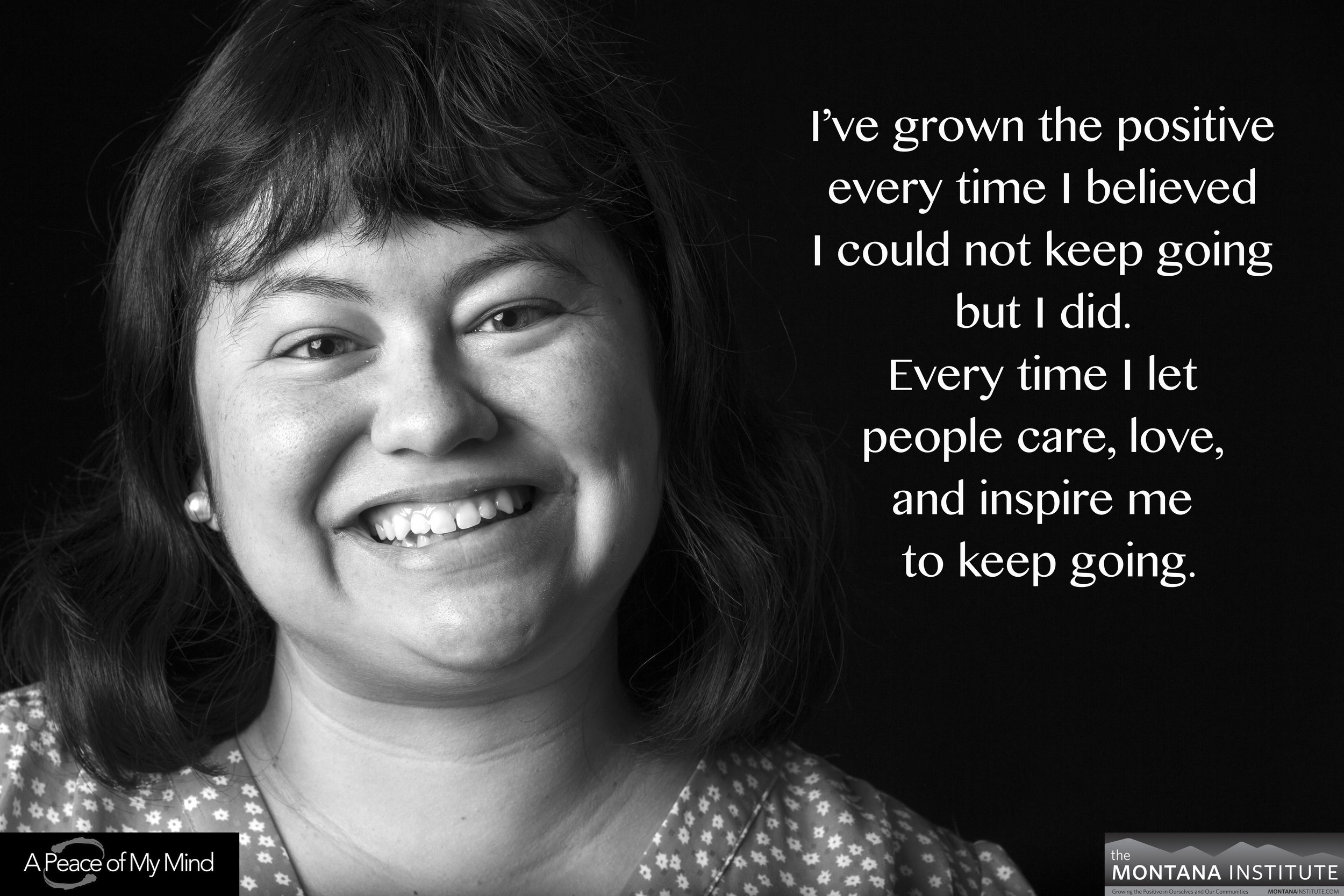Four Ways to Use "Seeds of Fire, Roots of Hope" in Your Life and Work
/A guest post by Lilly Irvin-Vitela
…For Personal and Professional Discovery
I first read Seeds of Fire, Roots of Hope: Seven Principles of Inspiration for the Courageous Leader in 2012, when Jeff Linkenbach and his team came to Wisconsin to hold an Institute on the Science of the Positive by Children’s Hospital and the Children’s Trust Fund. During the event, participants were given an opportunity to dive into the book, reflect, and discuss the Seven Core Principles of the Science of the Positive.
At the time, I was involved in efforts to improve the quality of early care and education. The truth and positivity I found in Dr. Linkenbach’s book was a dose of medicine to my spirit. People I worked with closely were suffering from the fear, negativity, and mistrust that can accompany change that comes by way of legislative mandate. I knew I needed to share Seeds of Fire, Roots of Hope with them, too.
Since then, I’ve been weaving the book into my work building community and supporting leaders. Seeds of Fire, Roots of Hope has become a staple in staff meetings, the foundation for a book club, a driver for values-centered strategic planning, a core feature of leadership development efforts, and a go-to gift for social-justice leaders who are dealing with challenges and need a boost.
…As a Staff Meeting Staple
When I was the Executive Director of a statewide early childhood organization in Wisconsin, I started the practice of opening each all-staff meeting with Seeds of Fire, Roots of Hope. I chose a different principle as the focal point for each meeting.
Each staff member was given their own copy of the (very affordable) book. They were encouraged to read the chapter on the selected principle beforehand and to respond to the prompts at the end of each chapter. We even included reminders on agendas.
Aware that the staff was working at – and sometimes beyond – capacity, we made it clear that it was okay to read it the chapter with the staff during the meeting and jot down responses then. There was no wrong way to participate. Staff shared their favorite quotes and described why particular statements resonated with them. We then reflected on how each principle related to our individual and collective work, and how these principles were showing up in our efforts to achieve our mission.
When I decided that I was ready to leave the organization, the book became a touchstone during six months of transition planning. I believe the process was greatly improved because we were so intentionally connecting around shared values. Seeds of Fire created space for us to intentionally connect around shared values and choose a positive approach during a time of significant change.
…As the Focus of a Book Club
Later, while I served as the Executive Director of the Wisconsin Head Start Association, members expressed interest in staying connected, learning together, and supporting each other outside of our regular meetings. They were hungry for more frequent opportunities to connect in meaningful ways about shared work. We decided to start a statewide book club, and the first book we chose was Seeds of Fire, Roots of Hope. It’s honest, strength-based approach and readability made it a great fit for local leaders who were working hard to deliver family and child development services to vulnerable families. Parents, staff, and directors from Head Start and Early Head Start agencies took part. Participants routinely commented about how valuable they found the book and the conversations it started. Many regularly reminded each other of the lessons they learned from the book in their daily work outside of book club. One person even asked if I could share the Seven Core Principles with their entire staff during a difficult time when funding and service delivery were in question. Knowing from my own experiences how powerful the messages in Seeds of Fire, Roots of Hope are during challenging times, I readily volunteered to share the principles in strategic conversations with the staff in the besieged organization. I received overwhelmingly positive about the value of focusing on the positive during hard times.
…As a Leadership Development Tool
I had the pleasure of being the lead trainer and co-mentor for two years for an intensive year-long leadership and community development program. Parent leaders were recruited from diverse local early childhood organizations to build their leadership skills and work on a local community development effort of their choosing. Each leadership institute I organized included time to dive into Seeds of Fire, Roots of Hope. Parent leaders engaged in powerful personal and professional leadership work as we reflected together on the Seven Core Principles. There was laughter, tears, and even prayers during our powerful conversations about how to be ethical, impactful leaders. Seeds of Fire, Roots of Hope became an invitation for each of us to be the best version of ourselves at our leadership institutes, within our own families, and during our community work.
…As a gift that Inspires
Seeds of Fire, Roots of Hope sparks meaningful conversations about the hard and joyful work of transforming communities and ourselves – and can be the catalyst for inspired action. I always have a few extra copies on hand to give to other social justice leaders working when they are feeling stuck or down. It taught me to think differently about the challenges I face in my work, and I know it can do the same for you.
Lilly Irvin-Vitela was born and raised in New Mexico and is the owner and principal consultant at Common Worth, LLC. Her work gives her the honor and joy of working with people who are committed to accomplishing social justice goals in a relationship-based way.




